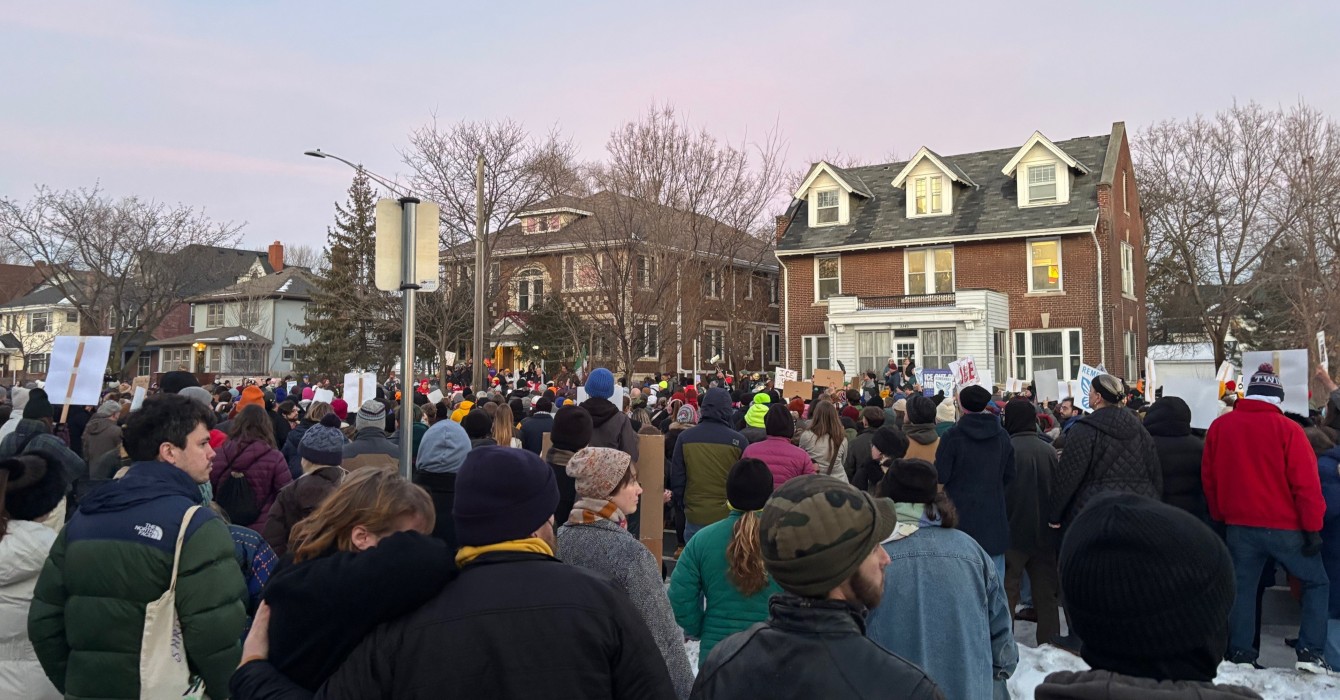Randy Evans has spent the past three years accompanying people who are homeless.
On Tuesdays and Thursdays and every other Saturday, he cooks them a hot meal. Other days, he visits their encampments and listens to their stories.
As relationships form, he’s there for them. He drove one man to Fort Myers, Florida, to get a driver’s license, and another woman to Philadelphia to get her birth certificate. He’s welcomed people to his home for showers or to do their laundry. He’s found day jobs for some and rooms to rent for others.
But when Hurricane Florence barreled toward the Carolinas in September, Evans, a 35-year-old United Methodist layperson who lives 7 miles from the beach in Wilmington, North Carolina, realized he needed to assist his homeless friends in a bigger way.
After quickly deciding to evacuate his wife and great-nephew, who lives with them, he began collecting food -- cans of tuna, breakfast bars, bottled water. Then he moved most of his furniture into his garage and began to spread the word. If people couldn’t or wouldn’t take cover in one of the city shelters, they were welcome to stay with him.
In fact, he’d drive them to his house.
On the eve of the storm -- hours before torrential rains came ashore on Sept. 14 -- 35 people took him up on his offer.

By 2 a.m., the lights went out. Hours later, the generator broke.
The hurricane unleashed 23 inches of rainfall on Wilmington and spawned four tornadoes in New Hanover County. Flooding and downed trees blocked dozens of roads, leaving the coastal city largely cut off from the rest of the state.
For seven nights, people rolled out blankets and took shelter in Evans’ steamy 1,600-square-foot ranch. Evans hung a sheet of paper outside the bathroom where people could sign up for cold showers. (There was no hot water.) He grilled hamburgers, chicken and shrimp before the food could spoil. He drove out to collect meals provided by local charities for his guests.
For most of those long, wet days, there was nothing to do but wait -- and get to know one another.
“Being in a house with 35 individuals for seven days, you have to learn how to get along, and you have to figure out how to be in community,” he said. “There’s no choice, especially in a confined space.”
Although the hurricane prompted a particularly dramatic example, forming relationships with poor people is what Evans’ work is all about. He doesn’t call these people “homeless”; he prefers “friends in poverty” or simply “friends,” so as not to define them solely by their lack of housing.
Are there ways in which the language you use might be disrespectful to those you serve? If so, how could you change it?
His ministry, Walking Tall Wilmington, is still fledgling. This year’s budget of $30,000 comes from local businesses, churches and a United Methodist conference grant. Evans doesn’t take a salary but uses some of the budget to pay for his travel and the food he prepares. He has an eight-member board and about a dozen people he can call on to help him when the need arises.
But for the most part, it’s a one-man operation, and the calling is all-encompassing.
There were an estimated 322 homeless people in New Hanover County, where Wilmington is located, in a 2014 count. Evans thinks that is an undercount and consists mostly of people in shelters, as opposed to those living in the woods.
He considers them all his congregation.

Largely self-taught, Evans nonetheless draws on a larger theological approach undertaken by Christian visionaries such as Jean Vanier, who founded a network of homes for people with developmental disabilities, and the Rev. Gregory Boyle, the Catholic priest who set up a ministry to former gang members in Los Angeles.
The idea is to shift from “working for” marginalized people to “being with” those same people. Instead of rushing in to provide food or housing or jobs or transportation, Christians practicing this approach stand alongside their brothers and sisters in need, befriending them and forming relationships.
Are there opportunities for you to shift from “working for” marginalized people to “being with” them? Would it require wholesale change or adjustment?
Theologians sometimes call this type of work a “ministry of presence,” but at its best, it is a gesture of Christian witness.
Alice Jo Schwanger, 59, camps out in the woods with her 23-year-old daughter. Both took shelter at Evans’ home during the hurricane, biding the weeklong stay by getting to know other people and playing cards.
Following Hurricane Florence, Evans handed out about 50 new sleeping bags, 50 new tents and 50 new tarps to replace those items ruined by the storm.
“Randy loves us for who we are,” Schwanger said. “I’ve never seen him judge anybody. I love that about him. He’s an advocate and a best friend. He communes with us. We really depend on him out here.”

Evans’ approach stands in contrast to an older way of doing things, said the Rev. Adam Baker, a friend of Evans’ and the associate pastor of Wesley Memorial United Methodist Church in Wilmington, which partners with Evans on Advent boxes for the homeless, as well as meals and financial contributions.
“It’s not what has come to be known in the mission world as a ‘white Savior complex,’ where we identify a poor group of people and we swoop in and give them what they need and fly away like superheroes,” Baker said.
“Randy has made himself incarnate with his friends in poverty. He does this because he sees them as people in need like himself. And because they were made and loved by God, how could you not come alongside them and get to know them and learn of Jesus through them?”
Meeting the homeless on their turf
Evans’ approach to helping Wilmington’s homeless people was born out of conflict -- with the police.
In 2015, he was working as director and co-founder of the Hope Center, a project of The Anchor church in downtown Wilmington. One facet of his job was to share food with homeless people.
Evans recognized a double standard in the way his homeless friends were being treated and reframed the conversation. What situations in your work could be reframed? Again, does language matter?
But whenever he did this, the police would invariably come around and remind him of the city ordinance that no one can “dispense, distribute, hand out or give out food on any street or sidewalk without a permit.”
One day, he noticed a group of elementary school students on a field trip enjoying their lunches by the river with no hassles from the police. It occurred to him that the police were in essence targeting the homeless because they didn’t want them there.
“I thought to myself, the ordinance doesn’t say they can’t get their own food, like a picnic,” Evans said. “So I quit saying we’re ‘feeding the homeless’; we’re sharing a meal with our friends.”

The next time the police officer came by, Evans told him he was sharing a meal with his friends.
“You’re splitting hairs,” the officer said.
“No, I’m having breakfast with my friends,” Evans responded.
“You don’t know any of these people,” the officer offered.
“Yeah, I do,” Evans said, and proceeded to name 15 people around him.
“I get the point,” the officer said.
Soon thereafter, Evans stepped down from his Hope Center job, mostly because of a conflict with his boss. But he also wanted to devote more time to a mobile ministry, where he goes out to unsheltered people instead of asking them to come to him.
Evans is critical of short-term mission efforts in which church members provide the poor with temporary remedies -- projects that can end up being more about assuaging guilt or checking off a box on a spiritual journey than truly ministering.
He thinks many well-meaning church people -- including, until recently, himself -- have a kind of hubris about the poor.
“One of the things I realized was that I was assuming I knew what individuals in poverty needed,” Evans said. “I assumed they needed a house, a car, a job. I quit assuming I knew what the needs were.”
In February 2017, he formed Walking Tall Wilmington with the goal of helping people in poverty develop self-worth, self-respect and dignity.
Are you making assumptions about what the people you serve need? Have you asked them?
Evans no longer thinks securing housing is the most important of homeless people’s needs. Forming relationships with others and being able to build community may be just as critical to their well-being. He tells a story of a man who found housing but was then cut off from his community; isolated and alone, the man ultimately fell back on bad habits.
“These people have gifts,” Evans said. “They have strengths. They have talents. We want to create a space for them to be. If they get a house or a job, great. We don’t want to keep them in poverty just to keep a job. But if they never get to that point, we’re going to love them regardless. We’re still going to want to be in relationship with them.”
Dinner and a service
Every other Saturday, Evans prepares what he calls “The Feast” -- a meal and a short Christian service at an open-air pavilion on Water Street in Wilmington.
The event exemplifies Evans’ unique approach.
There’s no requirement that people pray or listen to a service before eating. And volunteers in aprons don’t hand recipients plates of food. People come up and serve themselves, piling on as much or as little as they want.
On a recent Saturday, Evans and his wife, Marya, spent the morning in their kitchen cooking 85 drumsticks, 20 pounds of potatoes, seven heads of cabbage and several dozen ears of corn.

Soon after 5 p.m., they wrapped industrial-size pots and trays in towels and carefully loaded them in their van, along with a box of paper plates, plastic utensils, tongs and serving spoons.
By the time the couple arrived at the pavilion and arranged the food on a table, a dozen of Evans’ friends had begun to gather. They helped themselves to chicken and vegetables and sat down to eat at the small picnic tables overlooking the Cape Fear River.
Evans stood back and allowed the crowd to socialize and eat. In the short service that followed, he took a minor role introducing the service leaders.
“I don’t want to be a figurehead,” he said.
Weeks earlier, he had arranged for different pastors in the region to deliver a 10-minute conversational homily, followed by communion.
Many church leaders are happy to take part, said the Rev. Tara Lain, who served communion to the homeless on a recent Saturday.
“Most churches want to be a part of ministry to the unsheltered population but don’t necessarily have someone with a passion or the skills for creating such a program,” said Lain, the pastor of Wilmington’s Trinity United Methodist Church. “He’s already done that. And he’s made it very accessible for pastors and laity to come alongside.”
Not all of Evans’ friends stick around for the service, and that’s fine by him.
Some that do say they feel grateful for their friend, whom they call just “Randy.”
“He does a whole lot for everybody,” said Michael Gordon, 34, a frequent participant who took shelter in Evans’ home during the hurricane. “He’s passionate about it.”
Radical and biblical
Evans is the first to admit he doesn’t have it all worked out.
His ministry, not yet two years old, is a work in progress.

Evans’ church life began with Vacation Bible School at a Southern Baptist church near his childhood home in Hillsborough, North Carolina. As a teen, he attended church regularly.
After high school, he enrolled at Fruitland Baptist Bible College in Hendersonville, North Carolina, a ministry of the Baptist State Convention of North Carolina. But he found the curriculum too conservative and not open enough to his questions.
He left and took up work as the manager of a Chapel Hill rockabilly band, the Dex Romweber Duo, booking shows, setting up equipment, selling merchandise. Later, he worked as a cook at Whole Foods in Raleigh while attending community college.
He met his future wife, a nurse, through friends. The couple decided to settle in Carolina Beach and later Wilmington, where he hoped to complete his bachelor’s degree at UNC Wilmington.
Instead, he got involved with a United Methodist faith community called The Anchor and from there became actively involved with its mission to homeless people.
He has developed strong relationships with United Methodist pastors in the area and wants to continue his theological training, perhaps in conjunction with a social work degree. In the meantime, he is increasingly sought out as a Sunday morning speaker in churches across the state, where he shares hard-fought lessons from his work.
He reads constantly, and he stows a copy of Howard Thurman’s civil rights classic “Jesus and the Disinherited,” a kind of manual of nonviolent responses to oppression, in his van.
Along the way, he has earned the respect of many of the state’s United Methodist pastors.
How could you share the work with other partners?
“He literally does what most of us pastors would dream about doing -- entering into the literal and figurative thickets of life and meeting people where they are, listening first and walking hand in hand and heart to heart and seeing that they are not forgotten,” said the Rev. Nathan Arledge, the pastor of missions and community engagement at Myers Park United Methodist Church, Charlotte, who met Evans through the Methodist conference.
Evans understands how some people might view his work as radical; in many ways, it is not the kind of ministry most churches engage in. But, he points out, it is very much in line with the way the Gospels portray Jesus’ interactions with people.
“Biblically,” he said, “we’re not really all that crazy in the way we engage.”
At its root, it’s about being there.
“Our No. 1 priority is to let them know this is a space where you can be you -- with all your flaws, with all your insecurities, with your joys, your sorrows, your mental illness, whatever the case may be,” he said. “We’ll walk alongside you. We’ll listen to your story. We’ll be present.”
Questions to consider
Questions to consider
- Randy Evans does not refer to the people he serves as "homeless" because he doesn't want to define them by their needs. Are there ways in which the language you use might be disrespectful to those you serve? If so, how could you change it?
- Are there opportunities for you to shift from “working for” marginalized people to “being with” them? Would it require wholesale change or adjustment?
- Evans recognized a double standard in the way his homeless friends were being treated and reframed the conversation. What situations in your work could be reframed? Again, does language matter?
- Are you making assumptions about what the people you serve need? Have you asked them?
- How could you share the work with other partners?









